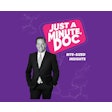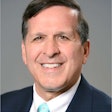
Three years ago, Tom Osmun, D.D.S., a general dentist in Fenton, MO, paid $10,000 to Web marketing firm Sesame Communications to launch his Web site and maintain it for three years. Now he pays around $400 a month to manage the site, optimize searches, handle patients' online accounts, and operate an e-mail newsletter.
It has been money well spent, Dr. Osmun insists.
"People who come in wanting more advanced services like implants and cosmetic treatments tend to do their research online first, and when they type 'Fenton dentist' into Google, my site is usually the first one listed below the sponsored links," Dr. Osmun said. "Some of my most profitable clients are those who did their research on the Internet and found my Web site."
Helaine Smith, D.M.D., M.B.A., a cosmetic dentist in Boston and a columnist for DrBicuspid.com, averages eight new patients a month from people who found her Web site, or roughly twice as many as those who heard about her practice via word of mouth. And, like Dr. Osmun, she says Web referrals are more profitable.
"We definitely get a higher-quality patient from the Web," Dr. Smith said. "Everything about them is better, from their socioeconomic background to how serious they are about committing to treatment. It brings in another $5,000 to $20,000 a month."
Keywords
|
10 do-it-yourself SEO tips
|
But before these high-quality patients walk into your waiting room, they have to find your Web site. Both Dr. Osmun and Dr. Smith used search engine optimization (SEO) firms to get their sites ranked high in search results.
The first step to SEO is picking the right keyword phrases -- the search terms potential patients use when they're looking for a dentist, said Harry Brooks, director of search marketing for Network Solutions in Herndon, VA. Those phrases should be as specific and local as possible.
"If someone Googles 'dentist in Virginia,' they'll get results from all over the state," he said. "If they Google 'cosmetic dentist in Fairfax,' they're more likely to find a dentist they may actually use. So 'cosmetic dentist in Fairfax' is a much more profitable keyword phrase than 'dentist in Virginia.' "
Dr. Smith keeps a record of how patients heard about her practice and what keywords they searched for. "We keep all that information in an Excel chart we can pull up with a single click," she said.
It took months of tweaking before a search for "Boston cosmetic dentists" put Dr. Smith's site near the top of Google's search results, said Dianna Huff, principal of DH Communications in Plaistow, NH, who helped Smith optimize her site. Huff started by inserting that phrase in key places inside the HTML code for Dr. Smith's site -- such as the title, description, and keyword tags -- as well as the body text itself.
Over time, Huff and Dr. Smith began expanding the site's content -- adding a blog, press releases, articles, and case studies. Huff wrote and distributed press releases using those keywords that linked back to Dr. Smith's site; as other sites republished the releases, they created backlinks, increasing the site's Google PageRank. (The more external sites that point to your Web site, the more valuable Google considers it.) Dr. Smith wrote an e-book called Healthy Mouth, Healthy Sex! in PDF format and distributed it free on the site. She posted podcasts on her site and created a video channel on YouTube.
Huff also optimized the site for Google Maps, an increasingly important component in local searches, by adding Dr. Smith's business information to Google's Local Business Center, as well as directories that Google pulls data from, such as InfoUSA.
All that work paid off. In September 2005, before Dr. Smith's site was optimized, it received about 500 visitors a month. Two years later, the site was averaging 7,700 visitors a month, roughly 4,000 of those coming directly from Google.
Avoiding black hats
SEO is a complicated process that can require some expert assistance to implement and optimize. But be wary of people who call themselves SEO experts but really aren't, said Alex McArthur, vice president for OrangeSoda, an online marketing firm in American Fork, UT.
"There are people out there who charge $200 for one backlink to your site and call it SEO," he said. "For the same money, we can create a site map, a variety of links, write articles and press releases about your practice, and distribute them across the Web."
McArthur advises dentists to look for SEO firms that have a presence at industry trade shows and to speak to a firm's clients before engaging one.
"I'd be very careful about the company you contract to do the work," agreed Jake St. Peter, president of Coalmarch Productions, a Web marketing firm in Cary, NC. "They could easily be doing 'black hat SEO' and you'd never know about it."
Black hat SEO includes a wide range of practices that run afoul of Google's Webmaster guidelines, such as using hidden text to fool search engines about the content on each page, cloaked sites that show one page to search engines and another one to readers, and "link farms" -- sites that consist almost entirely of URLs, which can increase the backlinks but offer no other value to Web surfers.
"An SEO firm working for your competitors could see your site is using black hat tactics and report you to Google," St. Peter said. "The next thing you know your whole domain has been booted out of Google's index."
It could take months to get your site reinstated -- losing valuable prospects to your competitors.
"In the end, you're marketing to two people: Google and your patients," he said. "You have to treat Google like a human being -- with respect. Learn what it likes and don't try to trick it. But you also want your patients to have a good experience when they visit your site. Google isn't going to form an opinion about the information on your site, but [your patients] will."
When not avoiding the dentist, writer Dan Tynan tends his blog, Tynan on Tech.
Copyright © 2009 DrBicuspid.com



















